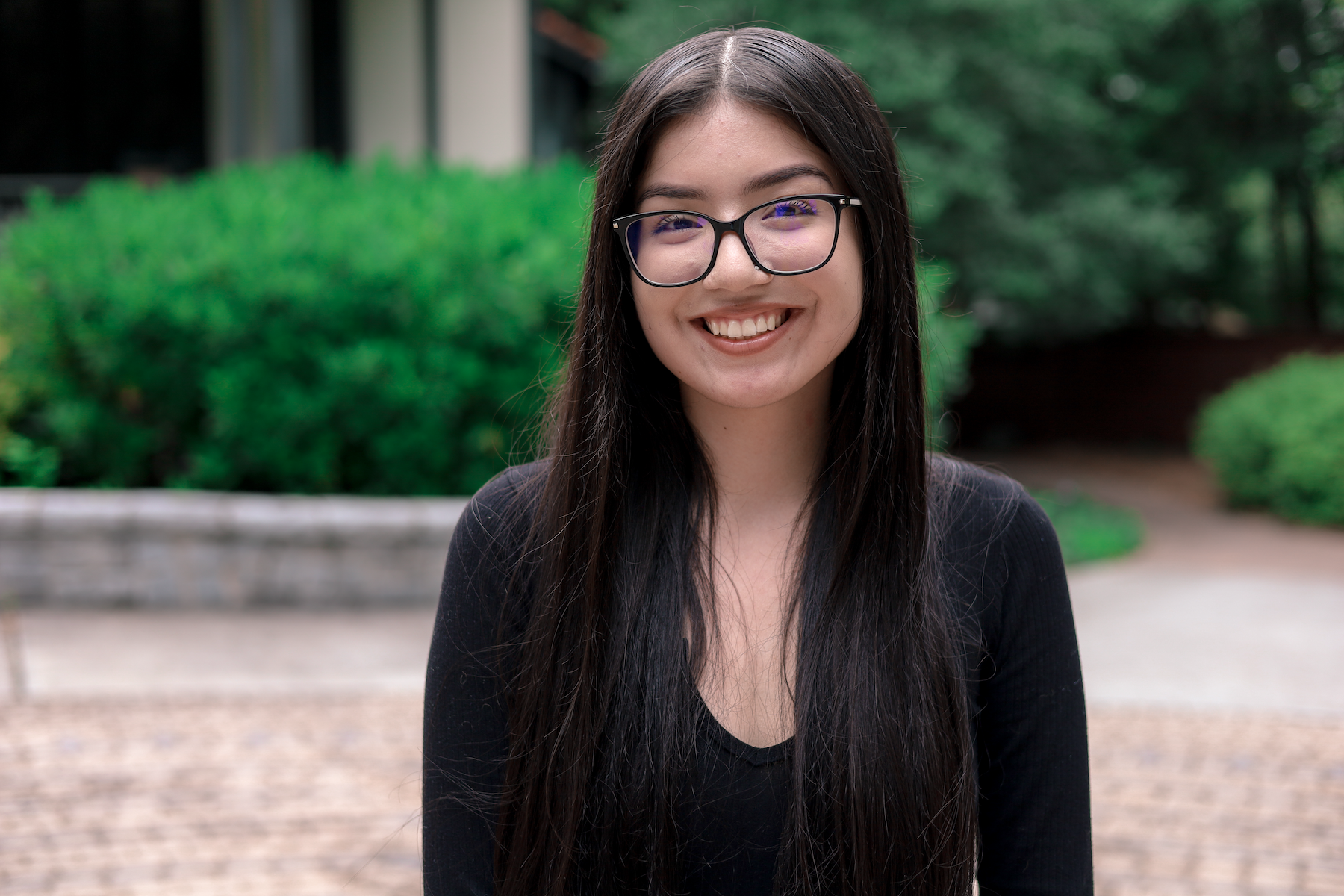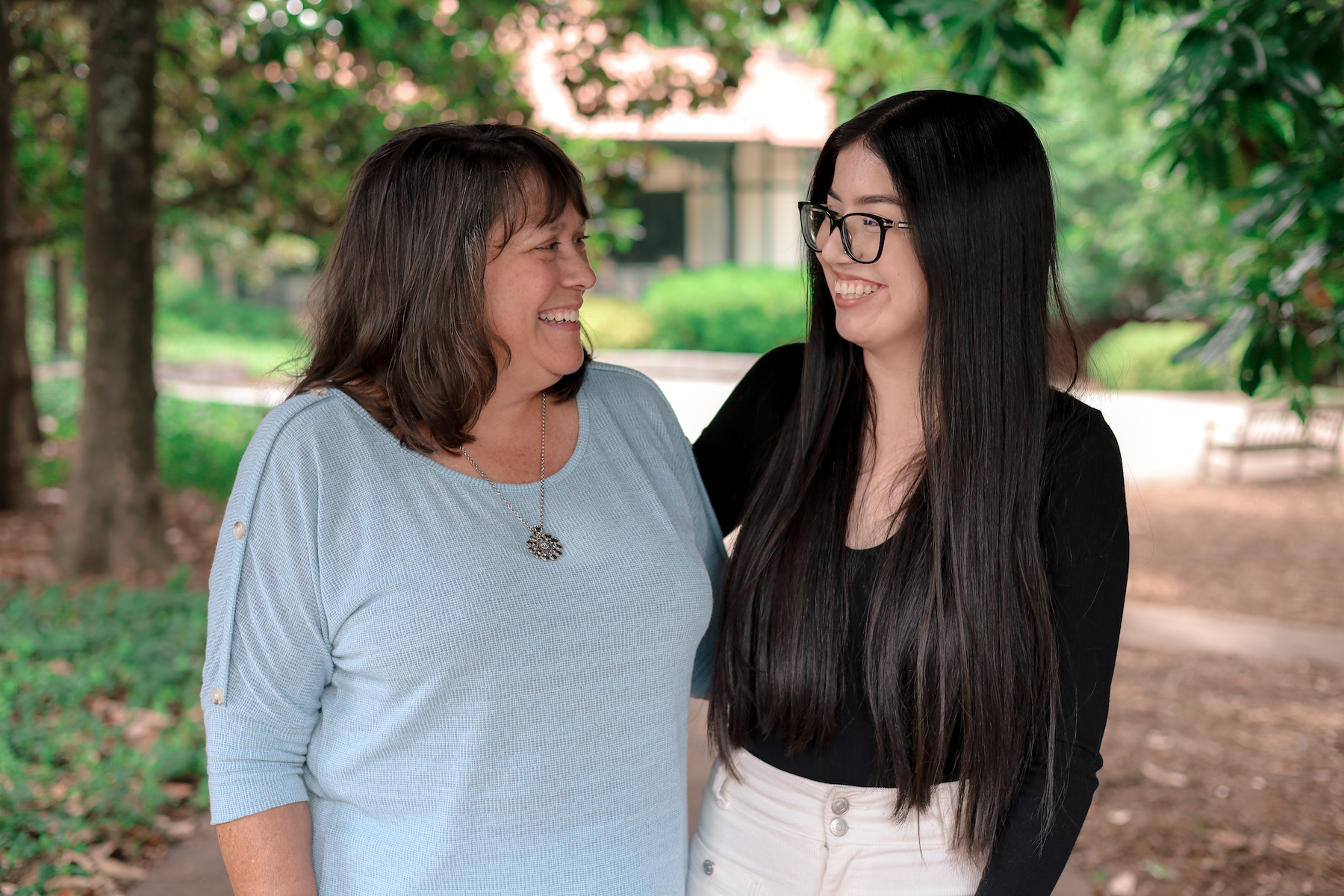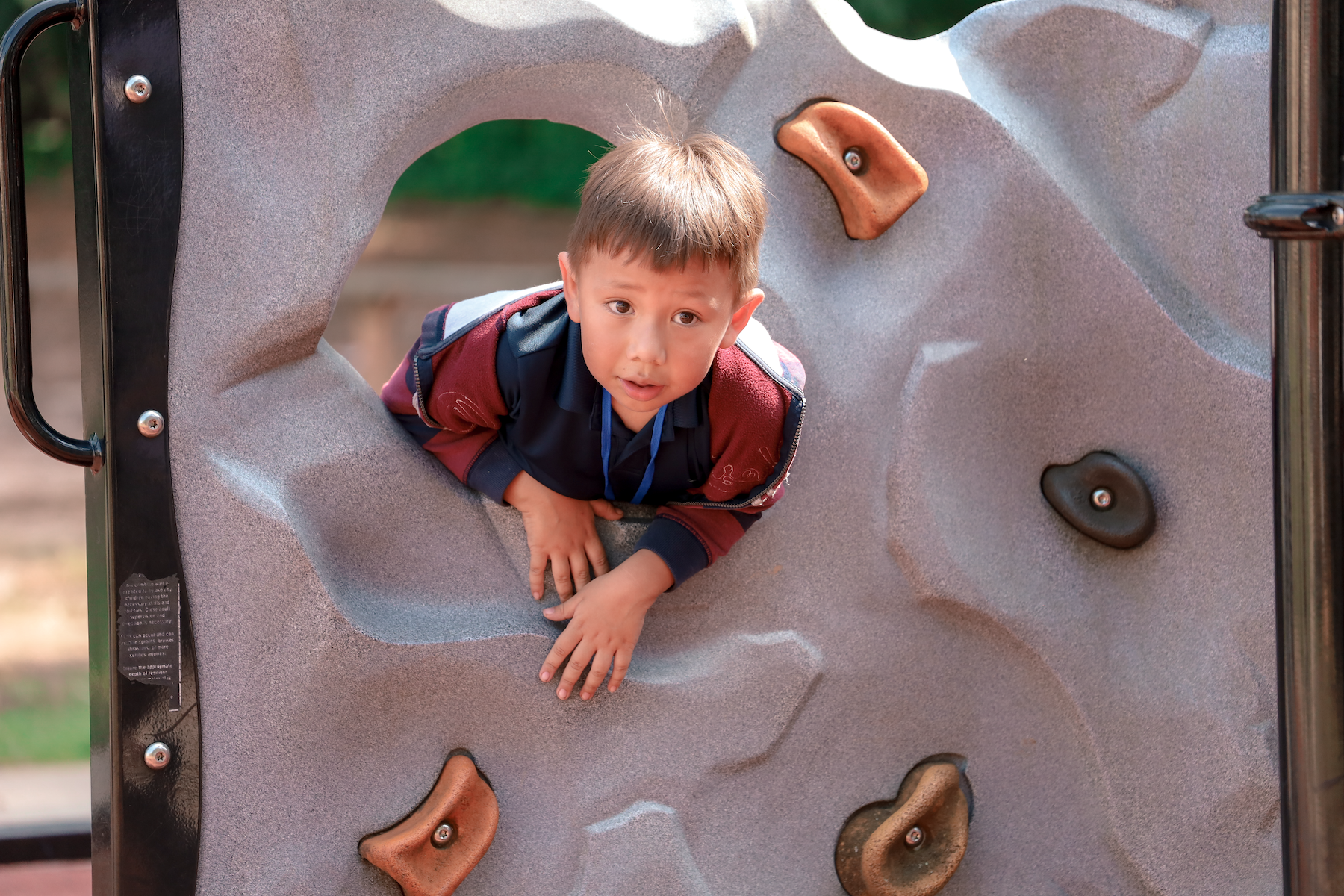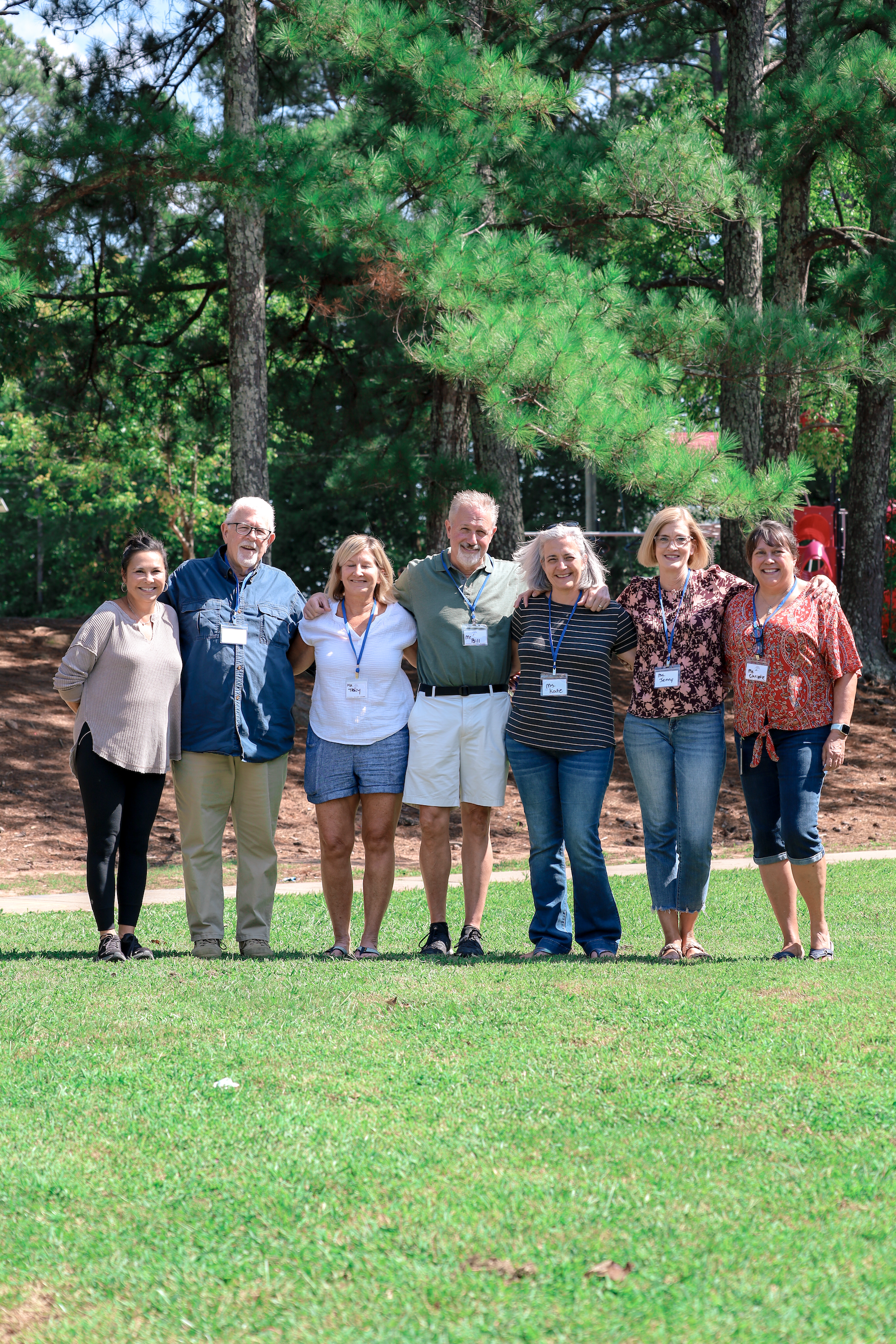Path to Shine
Children play before working with their mentors.
Children who live in poverty – that’s 1 in 15 children in Georgia – face an uphill climb to succeed educationally.
Family problems like housing stability, food security and mental health support can affect how much a child learns, and these children score significantly worse on state milestone tests than children who are not economically disadvantaged. Georgia is 44th in resources and opportunities for students in poverty.
Against these odds, Jessica de los Santos Avila rose to the top of her class at Osborne High School, with a 4.547 grade-point average and graduating in 2023 as valedictorian. Her confidence as a speaker and leader belies that she was once a shy little girl with a stutter. What launched her? Path to Shine, an after-school mentoring program encouraged by The Episcopal Diocese of Atlanta that pairs children with long-term volunteer mentors who help tutor and support them.

Jessica de los Santos Avila, Path to Shine graduate.
Christie Stevens was that mentor for Avila, and said she was so bright that she would have succeeded without help. But Avila disagrees, and made sure to invite Stevens to her Osborne graduation ceremony.
“I do owe a lot of my success to Path to Shine,” said Avila, who worked with Stevens and other mentors for four years while attending Fair Oaks Elementary School in Marietta, where the high number of students in poverty qualify it for federal Title I funding.
“At the end of the day, one of the adult mentors would read out loud and ask us questions, and one day they asked me and my older sister to read to the group and ask the questions,” Avila recalled. “I learned to be a leader there and got to be more comfortable. That helps me with people now, to be in front of them and just talking.”

Jessica with her mentor, Christie Stevens.
Path to Shine mentors are often retirees who want to use their lips and their lives to make a difference to children in need. Mentoring is their way of doing good and sharing with others, and for Stevens, serving is not a sacrifice.
“It truly may not be everyone’s cup of tea to go in and work with children,” she said, wiping away tears in an interview. “But if you enjoy children and you enjoy watching them grow, and helping them learn — I get so much more out of it than I feel I’ve ever given.”
WHAT I’M SUPPOSED TO DO
A decade ago, in a pew at St. Benedict’s Episcopal Church in Smyrna, Stevens pondered what she should do after retiring. The guest preacher that Sunday was The Rev. Lesley-Ann Drake, a deacon who shared about founding Path to Shine and basing it at that parish. Drake had no background in education, and had followed God’s calling to ask for help and resources.
As soon as Drake finished, Stevens recalled looking at her husband and said, “This is what I’m supposed to do.”
“I was absolutely terrified that first week. I was scared to death,” she added. “I had worked for IBM for 25 years in finance accounting, then did consulting for another five years, so I had a good business background, but nothing as far as education. And there were days with Path to Shine where I was Googling, trying to keep up with fourth and fifth grade math.”
Avila also recalled her fear of participating.
“I was really scared,” she said. “My older sister had been going for a couple of years, but I was shy and kept to myself. One day, I just thought, ‘Why not?’ Path to Shine was welcoming—super welcoming. All types of people were there, and specifically, Ms. Christie helped me open up even more. We had a good connection.”
Path to Shine also gave Avila school supplies and other resources. “It just alleviated a lot of financial stress that we were going through,” said Avila, whose father died when she was in middle school. “I’m extremely thankful to them.”
Path to Shine mentors work with students weekly for up to 2.5 hours, tutoring and helping them see opportunities for themselves that they otherwise might miss. “Path to Shine really helped me look into my own future,” said Eloy Meza, who received mentoring beginning in fourth grade on his way to becoming the program’s first high school graduate in 2020. He is in college studying to become a software engineer.
For Avila, enrichment activities “broadened her world,” Stevens said. “And then we stayed in touch over the years.”
The pandemic threatened the mentor-student relationships, not just the students’ education.
Path to Shine partnered with other nonprofits to provide wi-fi hotspots, computers and earphones for students in need. St Benedict’s set up grocery delivery to their families. “We were worried,” Stevens said. “Every week those kids logged in, and we were thrilled.”

Children play and have snacks before studying with mentors.
MORE MENTORS MEAN MORE CHILDREN GET HELP
Stevens has now worked with more than 100 children, and helped inspire other mentors to get involved. Several Realtors were inspired to start a Path to Shine program at Mosaic Church Marietta after hearing Stevens speak at a Rotary Club, where she emphasized that children who rise out of poverty often cite the support of a consistent caring adult in their lives.
“That person for me was a coach,” a Realtor told Stevens. “We moved from trailer park to trailer park to trailer park, and that connection with that coach made me the person I am today.”
Episcopal volunteers like Stevens keep Path to Shine operating through their longterm commitments. Since 2010, volunteer mentors and tutors now have logged more than 75,000 hours working one on one with students in as many as 17 locations across the northern half of the state, from Pulaski County in central Georgia to Cherokee County. The attendance rate is more than 90 percent at the 10 current locations, where about 100 children receive help from more than 60 volunteers.
With more mentors, more children could get help. Norcross is one Path to Shine location with children on a wait list. In Fayetteville, Episcopal Church of the Nativity is part of an interfaith effort to mentor students who live in a trailer park, and their numbers have grown from 6 to 17 children.

Mentors from the Path to Shine program led by Christie Stevens.
“More children desperately need help,” Drake said. “These children were particularly hard hit by the pandemic because they didn’t have access to the technological resources and their parents may not have had the education necessary to help them. There was just this huge gap well documented throughout the entire country: children living in poverty are the ones most drastically impacted during COVID, and they fell further behind.”
Path to Shine is committed to no more than two students to each mentor, to a flexible structure that adapts to each local community, and to collaboration with other organizations. The balance can be delicate. When Avila and her sister got off the schoolbus at their apartment complex, Path to Shine mentors walked them and the other kids to donated space in a nearby Baptist church. Now that church property is being sold and the Path to Shine location has closed.
SPEAKING FOR THOSE WITH IMPEDIMENTS
Meanwhile, Avila is a computer science major at Kennesaw State University, with plans to transfer to Georgia Tech. One of her most personal goals is to advocate for people with speech impediments, so their struggles can be understood around the world. She started her commencement speech by declaring her speech impediment and asking the audience to please be patient. That’s when Stevens and Drake recognized that Avila found her voice because of the mentoring path they had help pave, and now she uses that voice to advocate for others.
“Even though Path to Shine is for elementary school children, you form relationships that go beyond that,” Drake said, remembering her tears during Avila’s speech. “And I think the power of the program is that we stay connected.”